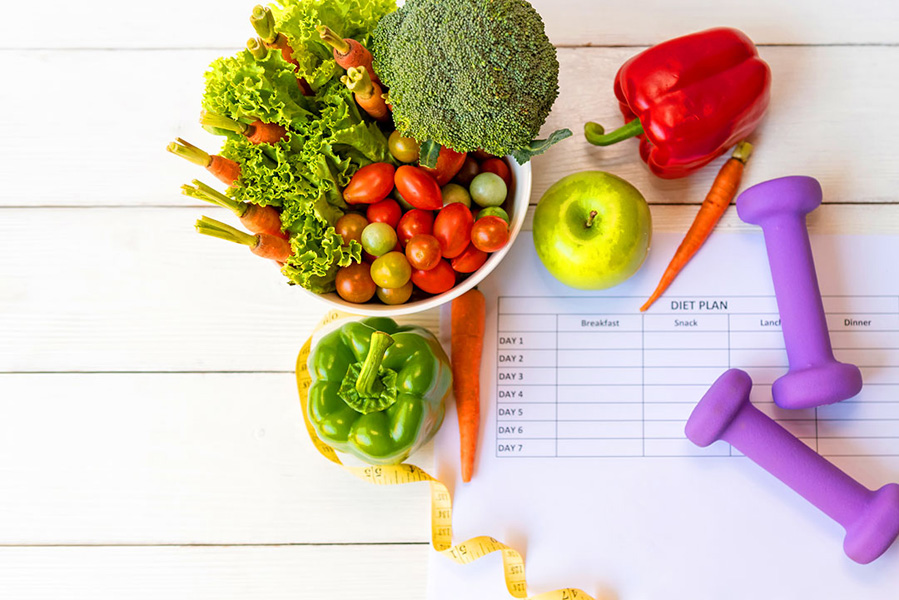
06 Sep What Role Does Diet Play? Nutrition in Recovery and Health
When it comes to recovery and overall health, diet is often the unsung hero. You can’t just rely on rest or treatment alone—what you eat plays a huge part in how well and how quickly your body heals. Whether you’re bouncing back from an injury, illness, or simply trying to maintain peak health, the right nutrition can make all the difference. So, what role does diet play in recovery, and how can you fine-tune what you eat to boost your health?
Fuel for Healing
Think of food as the fuel your body uses to repair itself. Just as you wouldn’t put low-grade fuel in a high-performance car, you shouldn’t fill your body with junk and expect it to run smoothly. In recovery, your body requires more energy and specific nutrients to repair damaged tissues, reduce inflammation, and replenish lost stores. What you put into your body can either speed up or slow down that process.
Key nutrients like proteins, vitamins, and minerals are essential in rebuilding tissues, forming new cells, and maintaining a healthy immune system. Proteins, for instance, are the building blocks of muscle and tissue, making them vital for recovery from injury or surgery.
Meanwhile, vitamins and minerals, such as vitamin C, zinc, and iron, play supporting roles in everything from collagen formation to oxygen transport. Without the right nutrients, your body simply won’t have the tools it needs to heal.
Reducing Inflammation—The Diet Connection
Inflammation is a double-edged sword. On the one hand, it’s part of your body’s natural healing process. On the other hand, too much inflammation can slow down recovery and worsen chronic conditions. Your diet has a significant impact on how much inflammation your body experiences, and tweaking what you eat can help manage it effectively.
Certain foods, like those rich in omega-3 fatty acids (found in fish like salmon and flaxseeds), can help reduce inflammation. On the flip side, a diet high in processed foods, sugar, and unhealthy fats can ramp up inflammation, making recovery slower and more painful.
If you’re serious about reducing inflammation, lean into foods like:
- Fatty fish (rich in omega-3s)
- Leafy greens like spinach and kale
- Nuts and seeds
- Berries, which are packed with antioxidants
By focusing on anti-inflammatory foods, you create an environment in your body that encourages faster, more effective recovery.
Hydration—The Forgotten Key
When we talk about diet and nutrition, we often forget one crucial element: hydration. Water isn’t just something to drink when you’re thirsty; it’s a vital part of your recovery and overall health. Staying hydrated helps transport nutrients to your cells, flushes out toxins, and ensures your muscles and tissues stay flexible and lubricated.
Dehydration can lead to muscle cramps, fatigue, and a slower recovery process. So, while you’re stocking up on nutrient-dense foods, don’t forget to also drink plenty of water throughout the day.
In addition to water, electrolytes play a key role in recovery, especially if you’re bouncing back from intense physical activity or surgery. Drinks rich in electrolytes can help replenish sodium, potassium, and other essential minerals lost during recovery.
Tailoring Nutrition to Your Specific Needs
Recovery looks different for everyone, and so does nutrition. Whether you’re recovering from surgery, an injury, or managing a chronic illness, your diet should be tailored to meet your body’s unique needs. For example:
-
- Post-surgery: You’ll need extra protein to rebuild tissues and heal incisions. Foods rich in vitamins C and A are also crucial for immune support and collagen production.
- Chronic illness: Managing an ongoing condition like diabetes or heart disease? You’ll need to carefully balance macronutrients while focusing on foods that lower inflammation and support overall health.
- Athletic recovery: If you’re recovering from a sports-related injury, your body needs a mix of protein, healthy fats, and complex carbs to restore muscle and energy levels.
Working with a nutritionist or dietitian can help you create a meal plan that meets your recovery needs and supports long-term health.
The Long-Term Impact of Nutrition
Diet doesn’t just impact how quickly you recover—it shapes your long-term health. The choices you make during recovery can lay the foundation for a healthier future. A diet rich in whole foods, lean proteins, healthy fats, and colorful vegetables not only helps you heal faster, but it also sets you up for success in preventing future health problems.
Conclusion
The bottom line? What you eat matters. Whether you’re dealing with a short-term injury or working to improve your overall well-being, the right nutrition can elevate your recovery and support a healthier life down the road.
